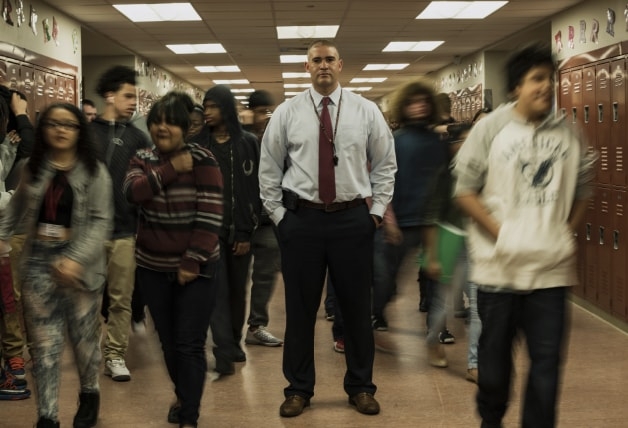
“Every day is so different. Sometimes it’s a great thing that happens, sometimes it’s a gut-wrenching thing that slaps you in the face with the reality that the kids are going through.”
Reading, Pennsylvania, isn’t the easiest place to grow-up. It has been called the poorest city in America. Many of the public school students face deep poverty, parents who are incarcerated, and insecure housing. Alex Brown grew up in Reading but left for college with dreams of becoming a professional baseball player. His mentors steered him toward a degree in Elementary Education, however, he returned to Reading to immerse himself in the schools. He began as a teacher’s assistant and is now principal of a school with 2,300 students, many of whom are the children of migrant workers from Central and Latin America. “When you have all of the 8th and 9th graders in one building,” he explains, “you have every characteristic of the city squeezed into one building with a childlike mentality.”
His goal is to make sure his students have the tools to succeed: “Some days I’m more of a counselor, some days I am a police officer investigating things, some days I triage and assist in the health room. I wear many hats as a doting principal. The social piece is sometimes greater than the academic part of my job.” While his work can be draining, his students continue to motivate him: “Why am I here as an educator? My answer is always because of the kids. Unconditionally. Not just the ones who are coming from good homes but, particularly in Reading, for a good portion of our students, this is the safest place for them. It’s the only place they will come in contact with a responsible adult.”







